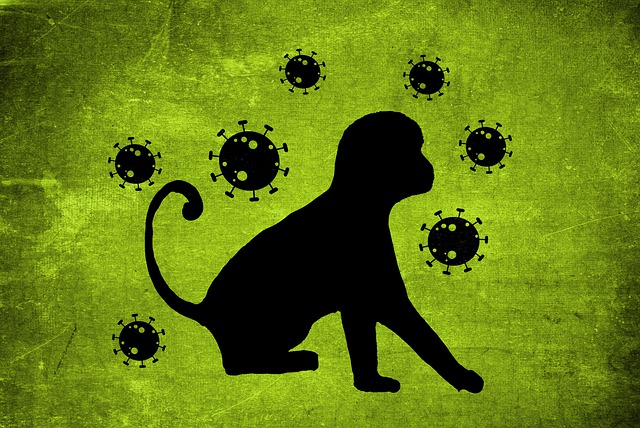 Monkeypox – what now?
Monkeypox – what now?
News about monkeypox virus (MPXV) infections around the world comes at a time when we are disease and vaccine weary. Covid-19 continues to evolve with global vaccine campaigns moving into the second year and now MPXV! We still need to be careful – MPXV is a serious public health threat. What is MPXV; what are our risks of getting MPXV; is there treatment; how can we protect ourselves; and what is being done – what next? In this article, I will address the most often voiced concerns about MPXV.
What is MPXV?
Monkeypox was first discovered in colonies of monkeys kept for research projects in 1958. The virus has since evolved to infect humans. In May, 2022, two cases were found through a Sexually Transmitted Infection (STI) clinic in Montreal, Quebec, Canada. Originally thought to be found only in people who traveled from African countries, we now know that MPXV can be spread by close contact, respiratory droplets, open sores, contact with body fluids or even by touching contaminated clothes or bedding (Dr Mylene Drouin, May, 2022). Even though the disease was diagnosed in an STI clinic, sexual encounters are not the only way the virus can be spread.
The spread of the virus was declared a global emergency by the World Health Organization (WHO) on July 23, 2022 with infections found in 70 countries. Fever, headache, feeling tired, weakness are early symptoms – but wait, these symptoms are the same as Covid, the flu or any number of diseases. According to the Centers for Disease Control (CDC, 2022), important symptoms to look for are swollen glands – especially in the neck and armpit progressing to a rash that evolves into the “pox”.
https://www.cdc.gov/poxvirus/
What are my risks of getting MPXV and how can I protect myself and loved ones?
Since the virus can be spread through close contact with infected people, follow the recommendations of the CDC 2022:
1. Wash your hands often or clean them with an alcohol based cleanser.
2. Avoid close contact with people who have a rash that looks like MPXV.
3. Don’t handle bedding, towels or clothing of a person with MPXV.
4. Avoid contact with animals that can spread the virus – rodents and primates. Avoid sick or dead animals.
5. Continue to wear a mask.
6. Make sure your other vaccines are up-to-date. https://
7. Try to keep as healthy as possible so your resistance is strong.
8. Isolate yourself if you suspect you might have the virus.
9. Disinfect high-touch areas in your home after having visitors.
10. Practice safe sex.
Is there treatment for MPXV?
According to Dr Lewis, the WHO technical lead for MPXV, there is a vaccine that has been kept in case smallpox resurfaces. The vaccine Imvamune is being used as of July 2022. It is only given to those men who have sex with men, those who have been in contact with the virus and for those who work with the disease. Research is in progress to determine if the Imvamune will provide the protection needed. While some people can be treated with the antiviral medication that was developed for smallpox, there is no current treatment specifically for MPXV.
https://www.cdc.gov/poxvirus/monkeypox/clinicians/treatment.html
What is being done and what next?
The vaccine program is expanding to include men who have sex with men. It is believed that a history of receiving the smallpox vaccine provides some immunity. Especially important is for people under the age of 50 to be very vigilant for symptoms since it is this age group that did not get the smallpox vaccine.
https://www.cbc.ca/news/canada/montreal/monkeypox-quebec-montreal-vaccine-expansion-1.6488551
Summary
The Government of Canada continues to work with global organizations for research and development in order to limit the spread of MPXV. Keep informed. Get a flu vaccine. Get the Covid booster. “immunize Now” is booking flu clinics for October/November, 2022. Take an important step in staying healthy by booking your workplace influenza vaccination clinic now. At “Immunize Now”, we want to encourage you to refrain from becoming disease and vaccine weary.” These vaccines are lifesaving.
